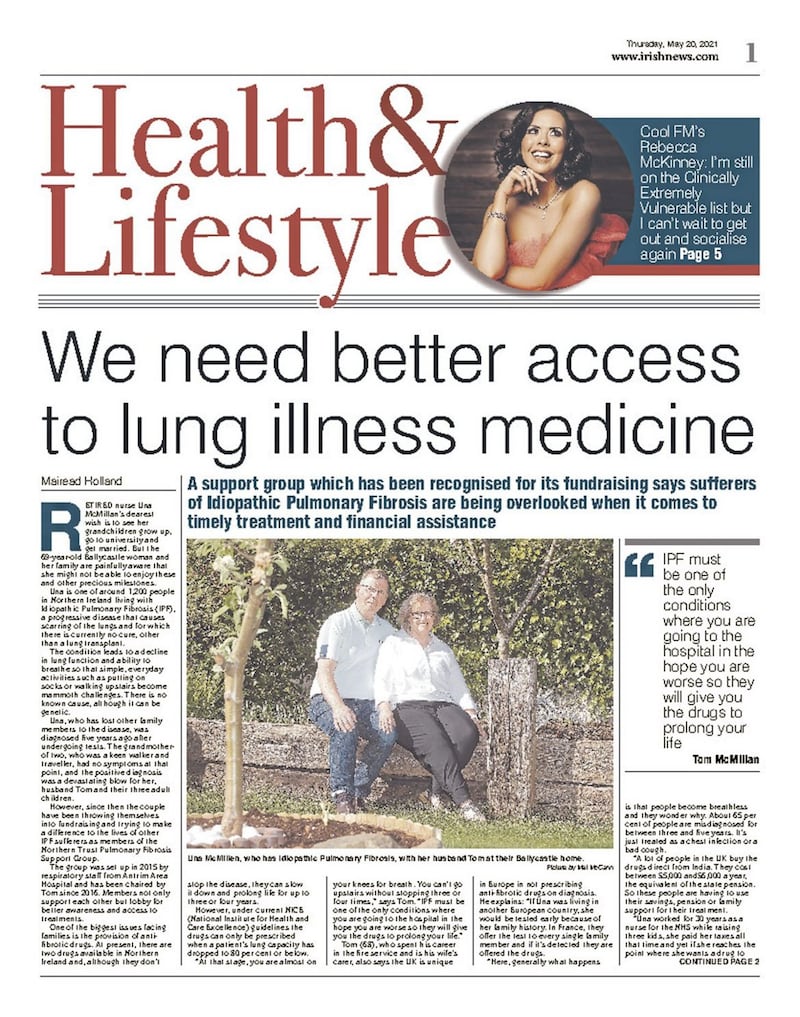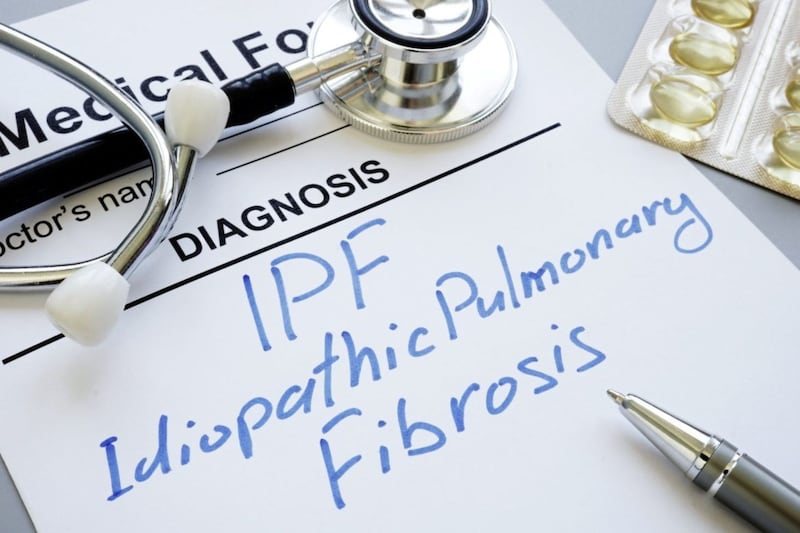THE fight for access to life-prolonging drugs for patients with incurable lung scarring will continue despite an announcement that their provision is to be reviewed, a Co Antrim man has said.
Tom McMillan, whose wife Una is one of around 1,200 people in Northern Ireland living with Idiopathic Pulmonary Fibrosis (IPF), said the review will take more than a year, with charity Action for Pulmonary Fibrosis warning that it must be conducted more quickly if patients are not to die.
Under current NHS guidelines, two anti-fibrotic drugs are available. However, patients do not qualify for them until their lung function falls below 80 per cent.
It is a cruel irony that was highlighted by Tom and Una, who live in Ballycastle, in a
[ recent feature in the Health & Lifestyle pagesOpens in new window ]
.

Retired nurse Una (69), who has lost other family members to IPF, was diagnosed five years ago.
It came as a crushing blow to the grandmother-of two, who had no symptoms at that point.
The condition leads to a decline in lung function and ability to breathe. The only cure is a lung transplant.
Una, Tom and their family have been trying to make a difference to the lives of other IPF patients as members of the Northern Trust Pulmonary Fibrosis Support Group, of which Tom is chairman.
IPF has always been the Cinderella of diseases. Evidence shows that antifibrotics not only slow progression of the disease but also extend life by up to two years or more. We are not going to give up on this Tom McMillan
The group has been working closely with Action for Pulmonary Fibrosis in campaigning for a change to the drugs legislation. They want every patient to be prescribed the drugs on diagnosis, and not only after waiting for their lung function has fallen below 80 per cent.
Tom said that although the announcement by the National Institute for Health and Care Excellence (Nice) was welcome, patients remained "worried and frustrated".
"It takes 50 weeks for the evaluation and the NHS has a three-month lead-in period, so realistically we are talking late autumn of 2022 before the drugs would be available," he said.
"One of the drugs, nintedanib, is already used throughout Europe and north America, and on cancer patients as well. There is nothing new about it at all, so why they have to evaluate it is beyond me.
"Even in the south, as part of the EU, patients are given it immediately on diagnosis. And it is already prescribed to patients whose lung efficacy is below 80 per cent."
Tom added: "It's inhumane. IPF has always been the Cinderella of diseases. There is very little known about it and very little done about it."

Evidence shows that antifibrotics not only slow progression of the disease but also extend life by up to two years or more.
"We are not going to give up on this. It's far too important an issue," he said.
"Our new campaign is to lobby for Nice and the pharmaceutical companies to fast-track these drugs.
"We have to keep the pressure on and let people know we are trying to get them these drugs which will prolong their lives and give them equality with other patients."








